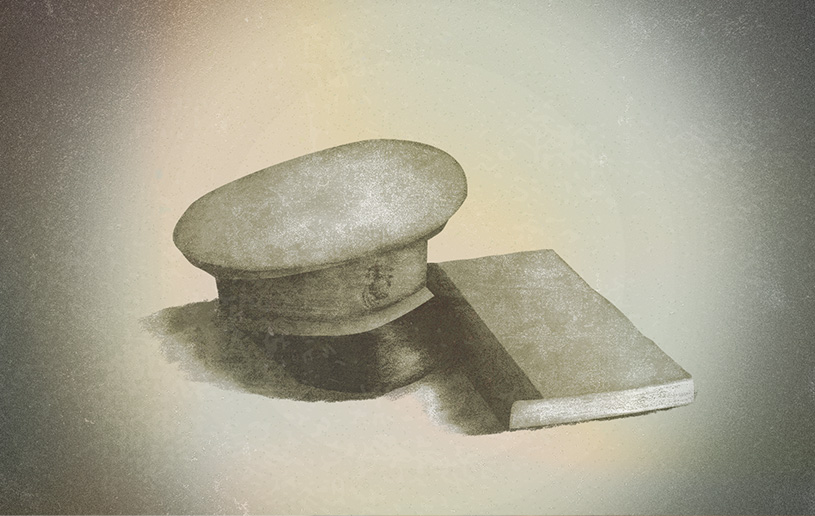
In 1957 as I was packing to head overseas to serve in the Marine Corps, my brother tossed me a book. It was titled Through Gates of Splendor by Elisabeth Elliot. Reluctantly, I took the volume. Once I started it, however, I couldn’t put it down.
The best parts of the book were the journal entries of Elisabeth’s husband Jim. I determined that if a man could have that kind of intimacy with God, right to the point of death—and could leave the legacy of his thoughts in written form for the whole world—then perhaps there was something to keeping a journal.
I began journaling during my 16 months overseas. I saw my “thoughts disentangle themselves over the lips and through the fingertips,” a little saying I learned from a mentor who gave me my first journal.
As I have journaled off and on over the years, life has been distilled for me through time. I want to capture those thoughts and have a record for the little hands of a grandchild or great-grandchild to move through when reading about their granddaddy. Best of all, I want to keep a journal because it is an intimate conversation with God.
Here’s an example of something I wrote in the front of one of my journals: “Personal journal of my experiences as I waited on God for His guidance, beginning September 19, 1993, ending June 30, 1994.” That was one of the most tumultuous periods of my life as I sought the Lord’s will about my future ministry.
This journal also contains letters from close friends. It holds my resignation letter to a former church, as well as my feelings that followed reading that resignation. The journal contains a chart I put together about the future of Insight for Living Ministries. Moving on, I find a letter from my youngest son and the inauguration ceremony notes at the beginning of my presidency at Dallas Theological Seminary. And right in the midst of it all, a prayer: “Lord, I praise Your name. This has become the breakthrough I needed and had asked of You as I waited.”
The journals I kept during that time cultivated a deep serenity in my quiet moments with Him. I was often reminded of what my mother used to say: “Roots grow deep when the winds are strong.”
Why do I share all of this with you? I want you to see how diverse my journal is. Some of the pages are hilarious! Don’t leave with the impression that if you begin to journal, you’ll become grim. You won’t. I think the discipline frees us and liberates us to enjoy life with the God who has given us the full spectrum of emotions.
Webster’s defines journal as “a record of experiences, ideas, or reflections kept regularly.”1 Kept regularly. You have deeper thoughts than you realize, but they escape you because you don’t capture them. If you’ve never kept a journal, you may wonder how to start. Easy, really. Open it to the first page, put your pen to the paper, and write the very first thing that comes to mind. This isn’t an essay contest. No one will grade you. In fact, no one will see it but you. (More on that later.) You aren’t required to write anything profound. Just write. In that place of solitude, let the words begin to flow. Perhaps you can start by writing a brief prayer to your heavenly Father. A journal is not a record of how you’re spending your time; it’s actually a record of your spiritual journey. Don’t confuse it with your calendar, your organizer, or even your diary.
A journal is an exercise in which the process, not the product, is the most important result. That’s why I do not use a computer. I urge you to pour your thoughts onto paper, by hand, without concern for grammar or spelling or punctuation, without worry or apology, without thinking about how it will read later. The journal is a tool to help you and the Holy Spirit make the best use of your time alone.
Keep in mind that it is your journal, not something you write for someone else. I do not record my journey with God with the hope that someone will publish it someday. Yet my journals will become a part of the legacy I leave for my family after I’m gone. These words represent my deepest thoughts. They are my best and most intimate expressions, all handwritten.
Journaling is worth the discipline it takes to cultivate the reward of intimacy with the Almighty. Remember Jim Elliot? In his journal are statements like, “He is no fool who gives what he cannot keep to gain what he cannot lose.”2 It’s those kinds of thoughts the Lord will give you when you discipline yourself to journal.
I want that for you. Deep roots. Journaling will help make that happen.
1 Merriam-Webster’s Collegiate Dictionary, 11th ed. (Springfield, Mass.: Merriam-Webster, Inc., 2007), see “journal.”
2 Jim Elliot, The Journals of Jim Elliot, ed. Elisabeth Elliot (Grand Rapids: Fleming H. Revel, 2004), 174
Copyright © 2014 by Charles R. Swindoll, Inc. All rights reserved worldwide.

